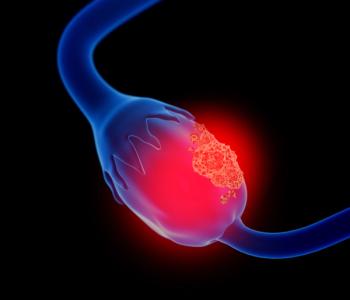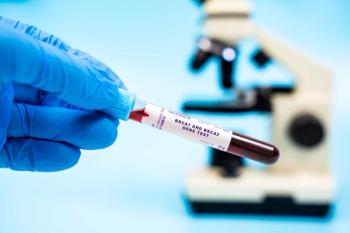
Aggressive Treatment Might Benefit Older Patients With Ovarian Cancer
Certain elderly women with ovarian cancer might benefit from aggressive treatment methods, a study recently published in Annals of Surgical Oncology found.
Certain elderly women with
The study analyzed a group of 148 patients treated for EOC between 1998 and 2019 to assess outcomes in patients treated with cytoreductive surgery (CRS) plus hyperthermic intraperitoneal chemotherapy (HIPEC), an aggressive and complex treatment regimen.
Researchers compared effects and outcomes around surgery by the type of treatment. Of the 148 patients identified, 42 underwent CRS plus HIPEC, 48 were treated with neoadjuvant chemotherapy plus CRS and HIPEC, and 58 underwent salvage CRS plus HIPEC. Age at the time of surgery (<65 years vs ≥65 years) was also taken into account.
At a median follow-up of 44.6 months, results showed that women treated with upfront CRS plus HIPEC had the longest median overall survival (OS) at 69.2 months for those younger than 65 years of age and 69.3 months for women 65 or older. In women who underwent neoadjuvant chemotherapy plus CRS and HIPEC, median OS was 26.9 months in the younger cohort and 32.9 months in the older group. Younger patients who were treated with salvage CRS plus HIPEC had a median OS of 45.6 months, compared with 23.9 months in the older cohort.
“Ovarian cancer frequently develops in older women. We often ask ourselves whether we should offer our older patients aggressive treatment modalities such as cytoreduction and HIPEC, whether the treatment is effective in these women and whether older women have more complications after these complex treatments,” study author Vadim Gushchin, MD, FACS, surgical oncologist and director of the HIPEC program at Institute for Cancer Care at Mercy in Baltimore,
Where progression-free survival (PFS) was concerned, the upfront CRS plus HIPEC showed a median of 43.3 months in the younger cohort and 45.4 months in the older cohort. PFS for younger patients given neoadjuvant chemotherapy plus CRS and HIPEC was 16.2 months vs. 11.2 months in the older cohort, and PFS in those treated with salvage cytoreductive surgery plus HIPEC was 18.7 months and 10 months, respectively.
“Caring for elderly patients requires additional skills and resources,” Gushchin said. “We will continue our efforts to quantify these requirements to make our results are applicable across other institutions. Also, we are planning to investigate how age factors together with molecular prognostic factors of ovarian cancer. These data could allow us to select patients better for different treatments.”
References
1. Zambrano-Vera K, Sardi A, Lopez-Ramirez F, et al. Outcomes for elderly ovarian cancer patients treated with cytoreductive surgery plus hyperthermic intraperitoneal chemotherapy (crs/hipec). Ann Surg Oncol. Published online January 3, 2021. doi:10.1245/s10434-020-09415-4
2. Southall J. Older women with ovarian cancer may benefit from more aggressive treatment. Healio. January 14, 2021. Accessed January 15, 2021. https://www.healio.com/news/hematology-oncology/20210114/older-women-with-ovarian-cancer-may-benefit-from-more-aggressive-treatment
Newsletter
Stay ahead of policy, cost, and value—subscribe to AJMC for expert insights at the intersection of clinical care and health economics.









